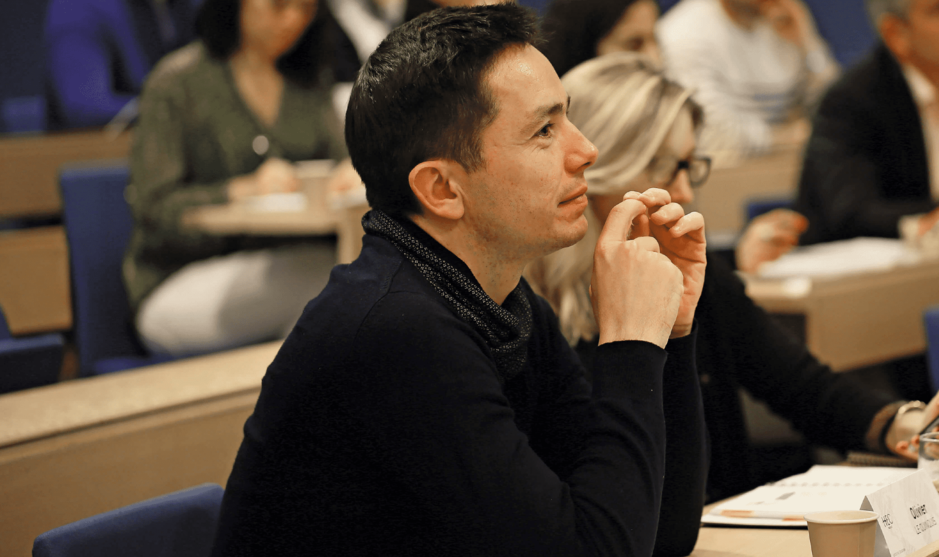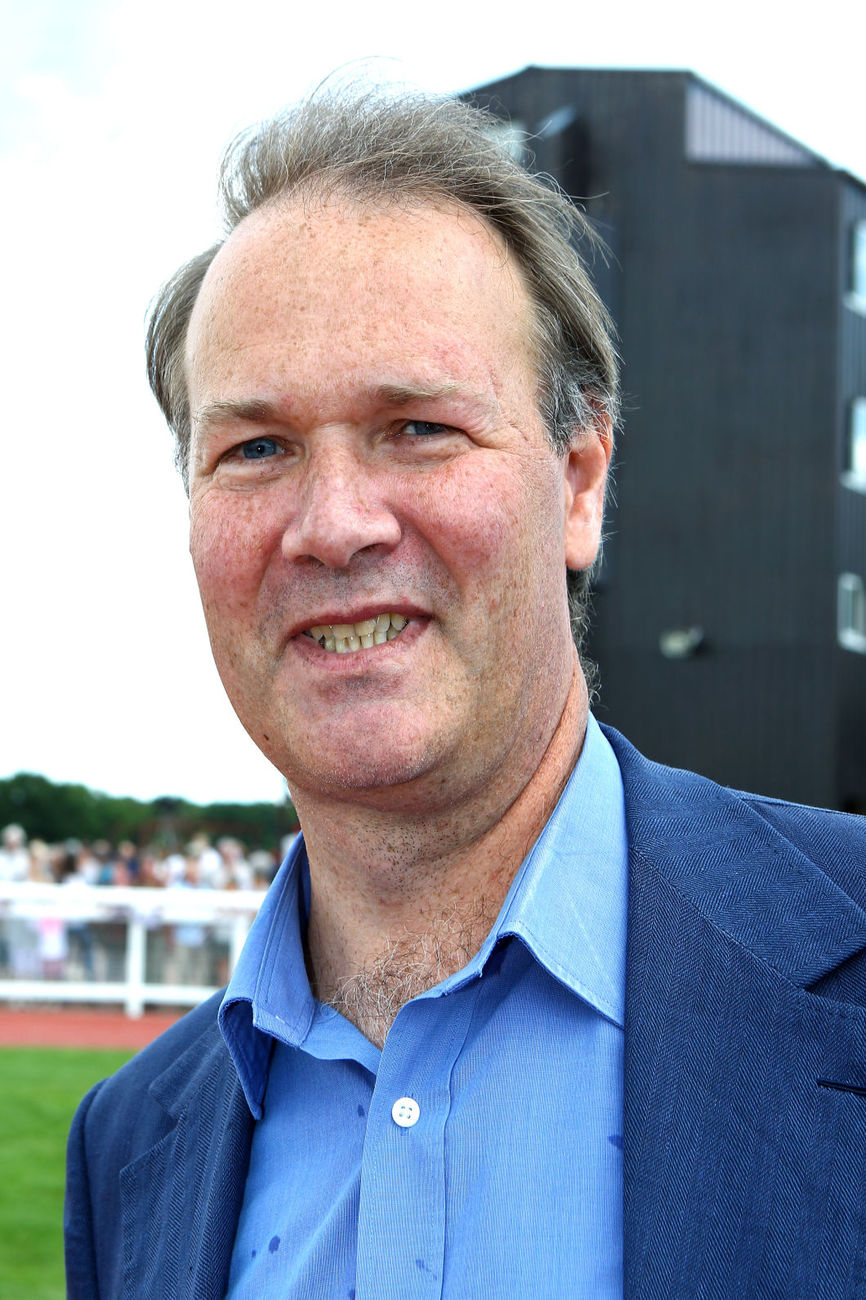Embracing Purposeful Leadership And Galvanizing Your Teams Around Meaningful Projects
To meet the major challenges we currently face, leaders must be able to offer their teams projects that are aligned with their personal and civic aspirations. At the same time, they need to help them accept that every great innovation project involves phases of failure and that this is part of the learning process. HEC Paris Professor Christopher Hogg, explores this new form of purposeful leadership, and explains why it plays a central role in the Global Executive Master in Management (GEMM) at HEC Paris Executive Education.

Thinking collectively and really understanding your teams
The role of the leader has changed dramatically in recent years. Far from being the archaic figure of an authoritative, and sometimes tyrannical boss locked in an ivory tower giving orders, new leaders draw on the concepts of community and exchange. “The image of the lone, brilliant, all-knowing entrepreneur from the 90s has faded over time,” states Christopher Hogg. “In our fast-moving world, we have to move forward collectively. Nowadays, investors no longer want to gamble on a single personality, they now prefer to gamble on a team.”
In this new entrepreneurial paradigm, leaders need to understand how each member of the team member contributes to the overall success of the group. Christopher Hogg points out that the need for diversity, which is an increasing priority for HR departments (as much from a social perspective as in terms of experience and skills), means that leaders need to be much more aware of how the different professions and teams in their organization function.
We now expect leaders to be pilots rather than bosses. They need to have the ability to galvanize and challenge their teams, to interact effectively with employees and create the right conditions for collective intelligence to emerge.
“Creativity requires a blend of complementary profiles,” affirms Christopher Hogg. “For design thinking, for example, you need to bring together engineers, designers and sales reps of different ages and cultural backgrounds.” To develop a high-performing talent pool, you need to have a good understanding of the background, skills and abilities of each person. This is a key quality for purposeful leaders.
Reconciling inventiveness, agility, and responsibility
As a pilot, the role of a leader is to chart the course. And it’s even better if the final destination stimulates a sense of competition. “If they want to be followed, leaders need to know how to inspire their teams,” adds Professor Hogg. To motivate the troops, they are focusing more and on finding sustainable solutions to key challenges we are currently facing, such as energy transition. This is because the prestige of a company and salary are no longer enough to recruit and retain the best talents.
“Entrepreneurship and a sense of purpose need to be aligned” he specifies. This need has clearly been amplified and accelerated by a heightened sense of awareness resulting from by the Covid-19 pandemic. While establishing “shared values” in a company is obviously important in terms of bringing people together, Christopher Hogg believes that we should not overinvest in them. We need to keep them in perspective to avoid the risk of sliding into totalitarianism. He’s convinced that leaders must share their vision with their teams. “Even if the final goal of a company-wide project is not the same for everyone, it’s important for all employees to feel that they are directly concerned.”
Ethics, social and environmental responsibility figure prominently in the aspirations of employees, especially for young graduates. However, it’s not necessarily easy to commit to more sustainable processes that are meaningful for everyone. Christopher Hogg gives the example of restructuring in the automobile industry. How can we make the transition to manufacturing low emission, eco-friendly electric cars without weakening the social structure of the company? Adopting new technology will of course generate new jobs, but, inevitably, professions connected to internal combustion engines will disappear and many jobs will be lost.
He is convinced that "these profound changes in the value chain mean that leaders need to have both a strong environmental and social conscience.” A great deal of inventiveness and flexibility is necessary to meet challenges of this scale.

Accepting failure to innovate more effectively
However, as Christopher Hogg points out, the paradox for leaders is that they not only have to demonstrate agility and adapt constantly to the present moment, but they also need to think long-term and drive sustainable projects.
“Agility should not lead to a sense insecurity” he underlines. “Otherwise, it can lead to a discrepancy between what the leader says, and the difficulties experienced by teams. Effective change is all about taking all the employees with you on a new adventure.”
He also reminds us that investors now devote a more financial resources to innovation than to continually improving existing processes. This means that leaders have every reason to launch major innovation projects. But, before doing so, they must prepare everyone for the high risk of failure. “At each phase of a start-up’s development process, there’s around a 75% failure rate,” he specifies. “This is not necessarily a major issue in itself as it ultimately creates value. However, to avoid the serious impact that failure can have on employees, it’s important to prepare them, enable them to become more resilient and make sure you have strategies in place to help them bounce back.”
Before setting out on an entrepreneurial venture, ensuring that everyone accepts the level of risk being taken and understands that it’s a shared risk is crucial. This means that if successful, the benefits will also be shared by everyone. And in the event of failure, no one will feel guilty or be placed in a fragile professional position. “You have to ensure that no one is left in freefall without a parachute” insists Professor Hogg.
The role of purposeful leaders is much more than just managing people. They need to share their ideas with their teams, embark them on purpose-driven projects, celebrate their successes and provide them with the necessary support for the inevitable failures along the way. The aim of new General Executive Master in Management (GEMM) to educate the senior managers of today and tomorrow in all these aspects of modern leadership.